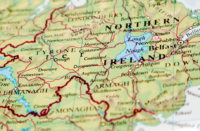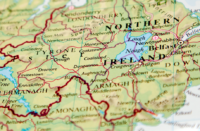In notebook no. 4 from Tricontinental: Institute for Social Research, “The World in Economic Depression: A Marxist Analysis of Crisis”, Marxist economists, E. Ahmet Tonak and Sungur Savran state that the present state of capitalism can best be described as a Great Depression starting in 2008. They point out that depressions are the “birth-pangs of a new society”.[1] They are inflection points in history. They offer the opportunity to overthrow capitalism and progress to a new society, a socialist society. However, as the authors make clear, “there is nothing automatic, nothing mechanical, nothing inevitable in this transition. For the transition from capitalism to socialism to become a reality, there must be a revolutionary break from the old world.”[2]
In this they echo Lenin who pointed out that every revolutionary situation does not lead to a revolution.[3] The expected world revolution to follow the October Revolution never materialised and it wasn’t until the second great capitalist depression in the 1930’s which led to fascism and World War II that further revolutions were successful. Why? Because as Lenin further pointed out revolution “arises only out of a situation in which the… objective changes are accompanied by a subjective change, namely, the ability of the revolutionary class to take revolutionary mass action strong enough to break (or dislocate) the old government, which never, not even in a period of crisis, “falls”, if it is not toppled over”.[4]
The subjective factor is the working class, is it conscious of the need to overthrow capitalism and build a socialist society, or does it believe that its interests can be met within capitalism, albeit a “reformed capitalism”?
The Irish working-class are looking for a change to the endless cycle of homelessness, hospital waiting lists, over-crowded and under-funded schools, neglected communities and food-banks. However, most believe that a change of government will suffice. The media has ensured that socialism is never discussed as an alternative. None of the alternative parties of government offer a critique of capitalism or question the state’s position within the imperialist system. How then do we advance the struggle for socialism?
The pro-Palestinian protests, which forced the Irish government to break with the EU consensus of support for Israeli genocide, demonstrated once again that mass mobilisation on the streets can force the ruling class to make concessions. This shows us the road to take. The Communist Party of Ireland fights to turn short-term, everyday demands into transformative demands that prepare the ground for a united Socialist Ireland. Among our demands are the the need for a programme for dealing with homelessness and for providing state-funded public housing; an all-Ireland public health service; the abolition of all undemocratic anti-trade union and anti-worker laws, and increased rights for workers in the whole of Ireland; an employment and economic programme that addresses the needs of the country, north and south; and a clear all-Ireland programme for an environmentally sustainable economy.
These demands are more than the Irish ruling class wish to concede. They will not be achieved by focusing on the Dáil or Northern Assembly. The working class will have to mobilise in their communities, workplaces, schools and universities. They will have to surpass the limits of bourgeois democracy.
Electoralism, the favoured position of reformists, seeks to channel working-class dissent along safe electoral lines and stop it from developing along a revolutionary path. Our programme puts before the working class a clear understanding of the limitations of bourgeois democracy, where workers and citizens have no real democratic control, to present the alternative of real participatory democracy, where there is full social control over politics, society, and the economy.[5] Our transformative demands have the potential to push beyond the limits of bourgeois democracy and overthrow capitalism.
[1] Tricontinental: Notebook no. 4. October 2023. “The World in Economic Depression: A Marxist Analysis of Crisis”. p.50
[2] Ibid p.68.
[3] Lenin, “The Collapse of the Second International”
[4] Ibid.
[5]Political Resolution, 26th National Congress, Communist Party of Ireland. P.29





